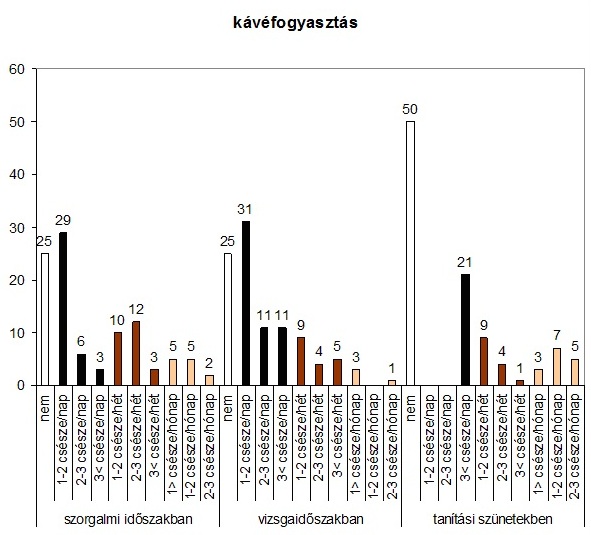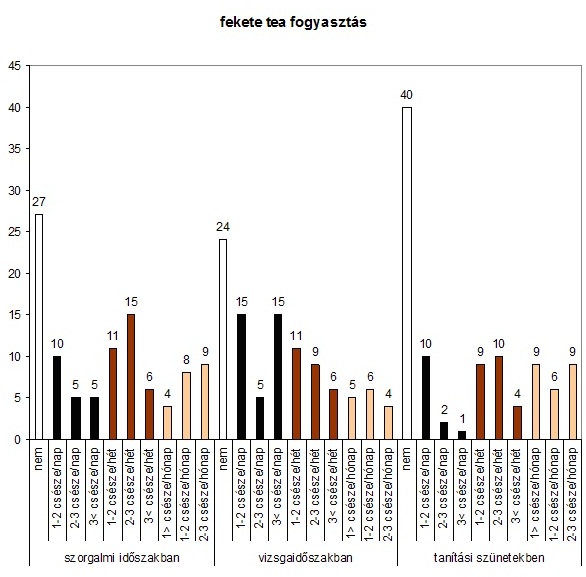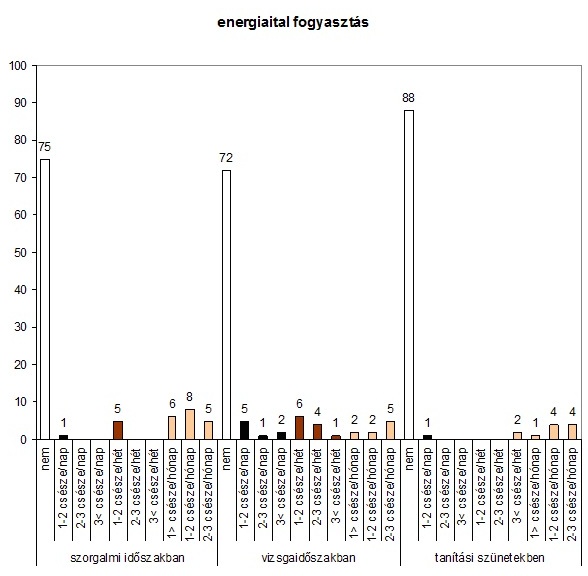|
Size: 2985
Comment:
|
Size: 3034
Comment:
|
| Deletions are marked like this. | Additions are marked like this. |
| Line 30: | Line 30: |
| [[#anchorname|Author et al, 2011]] | [[#http://cancerres.aacrjournals.org/content/72/13/3282.full|Author et al, 2011]] |
Koffein előfordulása, fogyasztási szokások, hatása a szervezetre
Contents
Előfordulás
[KÍSÉRLET LEÍRÁSA]
Fogyasztási szokások
[KÖZVÉLEMÉNYKUTATÁS LEÍRÁSA]
|
|
|
Hatása a szervezetre
Koffein és bőrrák
Koffein és agyi keringés
Koffein és terhesség
Koffein és 2-es típusú diabetes
Koffein és glaucoma
Koffein és súlyvesztés
Koffein és dehidratáció
Irodalomjegyzék
1. Fengju Song et al (2012): Increased Caffeine Intake Is Associated with Reduced Risk of Basal Cell Carcinoma of the Skin. Journal of Cancer Research 73(13), 3282-3289
2. Igor I. Bussel, Ahmad A. Aref (2014): Dietary factors and the risk of glaucoma: a review. Therapeutic Advances in Chronic Disease 5(4), 188-194
3. Ling-Wei Chen et al (2014): Maternal caffeine intake during pregnancy is associated with risk of low birth weight: a systematic review and dose–response meta-analysis. BMC Medicine 12:174
4. Rishma Vidyasagar et al (2013): The effect of black tea and caffeine on regional cerebral blood flow measured with arterial spin labeling. Journal of Cerebral Blood Flow & Metabolism 33, 963–968
5. Sayed Hossein Davoodi et al (2014): Caffeine Treatment Prevented from Weight Regain after Calorie Shifting Diet Induced Weight Loss. Iranian Journal of Pharmaceutical Research 13(2), 707-718
6. Shilpa N. Bhupathiraju et al (2013): Caffeinated and caffeine-free beverages and risk of type 2 diabetes. The American Journal of Clinical Nutrition 97(1), 163–174
7. Sophie C. Killer et al (2014): No Evidence of Dehydration with Moderate Daily Coffee Intake: A Counterbalanced Cross-Over Study in a Free-Living Population. PLoS One 9(1), e84154
8. Timothy P. Heffernan et al (2009): ATR–Chk1 Pathway Inhibition Promotes Apoptosis after UV Treatment in Primary Human Keratinocytes: Potential Basis for the UV Protective Effects of Caffeine. Journal of Investigative Dermatology 129, 1805-1815

 |
| |
| |
|